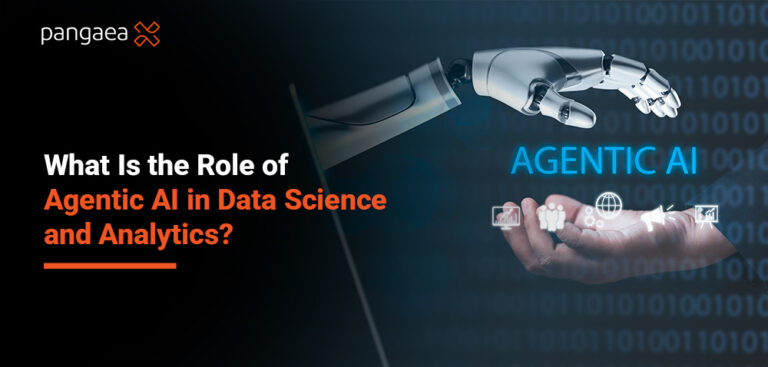From Prompt Engineering to Data Storytelling: Emerging Skills Freelancers Need in the AI Era

Introduction
The freelance data landscape is shifting rapidly as AI tools like GPT-4o, Claude 3, and Gemini 1.5 reshape how work gets done. Clients now expect faster insights, smarter automation, and stories not just spreadsheets.
To stay relevant, freelancers must go beyond traditional data skills. In 2025, success means knowing how to engineer prompts, craft data narratives, automate reporting, and visualize insights using AI tools. These skills not only improve efficiency but also directly increase the value of every deliverable.
This blog explores the key AI-powered capabilities that data professionals analysts, scientists, engineers, and storytellers need to thrive in today’s freelance economy. Whether you’re transitioning into AI-driven work or sharpening your edge, these are the must-have skills that set top freelancers apart in a competitive, tech-forward market.
1. Prompt Engineering
What Is Prompt Engineering and Why Freelancers Need It
Prompt engineering enables AI to deliver business-ready results.
Prompt engineering is not just about asking ChatGPT questions. It is about designing structured, reusable instructions that guide AI to deliver precise, high-quality outputs especially in complex data workflows. In freelance settings, this means automating reporting, generating client-facing content, and scaling analytics across tools and formats.
Advanced use cases for data freelancers:
- Creating reusable prompt templates that turn monthly Key Performance Indicators (KPIs) into branded client reports
- Building chain-of-thought prompts for summarizing product reviews or survey results
- Structuring AI prompts for integration into Zapier, LangChain, or Airtable workflows
Example freelance prompt:
“From this quarterly marketing dataset, extract top-performing campaigns, calculate ROI by channel, and write a 150-word insight summary formatted for an investor update.”
Why it matters:
- Saves hours of manual work across repeated client projects
- Delivers consistent results using prompt libraries and versioning
- Enables freelancers to offer high-margin services like AI report automation or insight generation at scale
In 2025, prompt engineering is a differentiator not because it lets you talk to AI, but because it lets you lead it.
According to LinkedIn’s 2025 Emerging AI Skills Report, prompt engineering ranks among the top five most requested freelance data skills. Clients are looking for professionals who can guide AI toward clear, business-ready results.
2. Data Storytelling
What Is Data Storytelling and How Does It Impact Clients
Storytelling explains the why behind trends – not just the what.
Data storytelling is the ability to translate analysis into a narrative that clients can understand, share, and act on. It is not the same as data analysis. Analysis uncovers trends, but storytelling explains their meaning and business impact.
What sets storytelling apart:
- Focuses on audience and context, not just metrics
- Builds narratives around Key Performance Indicators (KPIs) and outcomes
- Helps clients understand why something happened and what to do next
Freelance deliverables often include:
- Visual slide decks that explain campaign performance
- Summary pages for dashboards with AI-written insights
- Survey narratives that highlight customer sentiment and priorities
In 2025, tools like GPT-4o, PowerPoint Copilot, and Canva Magic Write allow freelancers to convert raw data into polished stories faster than ever. A freelancer might, for example, turn a Comma-Separated Values (CSV) export into a stakeholder-friendly report within minutes.
Clients now expect narratives, not numbers. According to McKinsey’s May 2025 briefing, 6 in 10 executives make faster decisions when insights are presented as stories. For freelancers, storytelling is no longer optional. It is a competitive advantage.
Manual vs AI-Powered Workflows: What’s Changing?
AI workflows save time and increase output quality.
| Task | Manual Workflow | AI-Powered Workflow |
| KPI Reporting | Written manually for each client | Auto-generated with reusable prompt templates |
| Dashboard Creation | Built manually in Tableau or Power BI | Suggested visuals and captions via GPT-4o/Power BI |
| Data Cleaning | Regex formulas and manual edits | GPT formulas, AI plugins for cleaning & validation |
| Survey Analysis | Read and summarized manually | GPT-based summarization in seconds |
| Insight Generation | Manually interpreted | Auto-generated executive summaries with GPT-4o |
3. AI-Powered Data Visualization
What Is AI-Powered Data Visualization?
AI dashboards now explain insights – not just show them.
In 2025, AI has redefined what clients expect from data visualizations. Static charts are no longer enough. Freelancers are now expected to deliver dynamic dashboards that surface trends, explain patterns, and guide decisions all in real time.
Top tools for freelance data visualization:
- Tableau with GPT-4 integration: Suggests visual formats, generates captions, and creates dashboards using natural language
- Power BI Copilot: Highlights anomalies, explains KPI (Key Performance Indicator) shifts, and automates report generation
- Gemini + Looker: Builds live dashboards with real-time summaries using Google’s AI models
Why this skill is critical for freelancers:
- Reduces dashboard creation time by 30 to 50 percent (LinkedIn Freelance Trends 2025)
- Helps clients understand insights without manual interpretation
- Delivers high-impact visuals that align with decision-making needs
Clients increasingly request dashboards that are interactive, auto-explained, and presentation-ready. Freelancers who combine data design with AI tools are winning more complex projects and delivering deeper value per engagement.
4. Machine Learning Lite: Deploying and Fine-Tuning Models
What Is ML Lite and How Freelancers Use It
Deploying ML models is now a no-code task.
Machine Learning (ML) Lite refers to simplified ML techniques using prebuilt models or no-code tools to deliver real business value.
Machine learning is no longer just for large enterprise teams. In 2025, freelancers are using lightweight, no-code or low-code ML tools to deliver classification, summarization, and scoring models for clients — quickly and affordably.
Freelancer-ready ML tools:
- Google Vertex AI and Amazon SageMaker Autopilot: AutoML platforms that train models without writing code
- Hugging Face: Offers pre-trained models for tasks like sentiment analysis, summarization, and entity recognition
- OpenAI fine-tuning: Allows freelancers to tailor GPT models to specific industry data or use cases
Examples of ML-powered freelance deliverables:
- A customer churn prediction model trained on past behavior
- A summarization model that condenses legal documents for a law firm
- A classification tool to label product reviews as positive, neutral, or negative
Clients want working prototypes not academic experiments. Freelancers who understand how to apply, fine-tune, and deploy ML models using existing frameworks are helping clients automate decisions, personalize experiences, and unlock new efficiencies.
5. Data Cleaning and Preprocessing with AI
How AI Helps with Data Cleaning & Preprocessing
Clean data is the foundation of all insights. AI helps speed it up.
Data cleaning ensures the data you use is accurate, consistent, and analysis-ready — and AI can now do much of the heavy lifting.
Before any analysis can begin, data must be clean, complete, and consistent. In 2025, freelancers are using AI to automate repetitive data preparation tasks making projects faster, more scalable, and client-ready.
Popular AI tools for preprocessing:
- Pandas AI: Adds natural language interaction to Python’s data wrangling library
- ChatGPT with regex prompts: Automates pattern matching, column splits, and data validation
- AI spreadsheet plugins: Tools like GPT for Excel or Google Sheets extensions assist with formula generation, anomaly detection, and deduplication
Freelancer tasks powered by AI:
- Removing duplicates or filling in missing values
- Standardizing categories and column formats
- Detecting outliers in large datasets for client review
Clients depend on clean data to trust the outcomes of dashboards, reports, or ML models. Freelancers who can use AI to automate these processes are saving time while ensuring data integrity especially on recurring or large-scale projects.
6. Data Automation and Workflow Integration
What Is AI-Powered Workflow Automation?
Freelancers must build data pipelines that run without manual effort.
Automation in data freelancing means streamlining how data is collected, moved, cleaned, and reported – often without touching a keyboard.
Data freelancers are increasingly expected to not just analyze data, but to automate how it moves, updates, and gets reported. In 2025, AI-powered workflow tools are helping freelancers deliver faster, more scalable outcomes.
Key tools used by freelancers:
- Zapier AI: Automates reporting tasks, like sending weekly dashboards via email
- LangChain: Connects Large Language Models (LLMs) to tools, files, and APIs for intelligent data workflows
- Apache Airflow with LLM agents: Schedules and manages complex Extract, Transform, Load (ETL) jobs
Freelance automation use cases:
- Generating and emailing weekly Key Performance Indicator (KPI) summaries
- Alerting clients when performance thresholds are crossed
- Automatically cleaning and storing new data from form submissions or surveys
Automation adds value by reducing manual effort, minimizing errors, and creating always-on client deliverables. Freelancers who can design and implement these intelligent pipelines are entering a high-demand niche within data services.
7. AI-Powered Insight Generation and Reporting
What Is AI-Powered Insight Generation?
AI now drafts summaries, recommendations, and reports.
Insight generation with AI means summarizing trends, highlights, and recommendations in plain language – fast.
Freelancers are no longer writing every report manually. In 2025, AI tools can analyze dashboards, extract key findings, and generate polished client summaries — all within minutes.
Common tools for insight generation:
- GPT-4o and Claude 3: Write summaries directly from structured data or visual dashboards
- Notion AI and PowerPoint Copilot: Turn metrics into meeting-ready slides or briefings
- Custom GPTs: Generate branded reports, client memos, or performance reviews using reusable prompt templates
Freelance use cases:
- Automating monthly multi-client KPI reports with GPT-4o and embedded visual summaries
- Generating industry-specific insights from dashboards, including benchmarks and trend narratives
- Producing C-suite-ready executive briefs from sales, marketing, or operations data with brand tone applied
Clients value time savings and clarity. Insight generation powered by AI helps freelancers scale their reporting services, meet deadlines faster, and deliver high-impact results with less manual work — all while improving consistency across projects.
8. Client Communication and Ethical AI Use
Why Ethical AI Use & Client Communication Matter
Clients care about how AI is used – transparency builds trust.
Ethical AI use is no longer optional – clients want to know how AI impacts data integrity, privacy, and fairness.
In 2025, clients expect more than results. They want to know how those results were created especially when artificial intelligence is involved. Freelancers must be prepared to explain where AI was used, how data was handled, and what steps were taken to ensure fairness and accuracy.
Best practices include:
- Disclosing when AI tools like GPT-4o or Claude 3 were used in analysis or reporting
- Flagging potential bias in AI-generated insights
- Offering explainable outputs, especially for client-facing summaries or dashboards
Clients in regulated industries, such as finance or healthcare, are especially focused on ethical AI practices. Freelancers who build trust by being transparent, ethical, and clear about how AI contributes to their work are far more likely to earn long-term engagements.
Showcasing These Skills Professionally
How to Showcase AI Freelance Skills Effectively
A strong portfolio shows results, not just tools.
Freelancers with AI-powered capabilities stand out best when they show real, relevant work – not just list tools. In 2025, clients want to see how your skills translate into value across business problems, industries, and deliverables.
What to include in a high-impact AI data portfolio:
- Prompt samples with before-and-after results (e.g. auto-generated summaries or transformed datasets)
- AI-driven dashboards built in Tableau, Power BI, or Looker with explanatory layers
- Storytelling decks that combine visuals and GPT-assisted insight summaries
- Reusable templates or workflows (e.g. Zapier automations, fine-tuned model prompts)
Freelancers who showcase specific project outcomes such as reduced reporting time, improved insight clarity, or automation of repetitive tasks are more likely to get matched to advanced data and AI projects.
Your portfolio is not just proof of skills. It is proof of results.
Final Takeaways: Skills That Define Top Freelancers in 2025
- Prompt engineering enables freelancers to scale high-quality AI outputs.
- Data storytelling helps clients act on data faster.
- AI visualizations make dashboards smarter and self-explaining.
- ML Lite tools let freelancers deploy models without heavy coding.
- AI-powered automation frees up time and creates new value streams.
- Insight generation accelerates reporting with GPT summaries.
- Ethical AI practices are vital for client trust and retention.
Conclusion
The freelance AI economy is evolving fast. Skills like prompt engineering, data storytelling, AI-powered dashboards, workflow automation, Machine Learning (ML), and automated reporting are no longer add-ons – they are essential to delivering value in today’s data projects.
Freelancers who develop and apply these capabilities are earning better rates, winning more complex work, and building lasting client relationships.
If you’re ready to grow your remote data career, now is the time to apply these skills in real-world projects. On Pangaea X, you can showcase your strengths, get matched to AI-driven opportunities, and stay ahead in a market that rewards adaptability, clarity, and innovation.
The future of freelance data work is already here and it’s built on action, not just tools.
FAQ
What are the top freelance AI skills in 2025?
Prompt engineering, data storytelling, AI-driven dashboards, ML Lite, data automation, and reporting.
Do I need to code to use AI in data freelancing?
Not always. Tools like GPT-4o, Power BI Copilot, and AutoML platforms support no-code or low-code workflows.
How do I build an AI data portfolio?
Show real project samples: dashboards, summaries, before-after prompts, and automation templates.
Is prompt engineering really different from writing good prompts?
Yes. It’s about designing structured prompts that scale across clients and tools — not just typing questions.
Get your data results fast and accelerate your business performance with the insights you need today.



